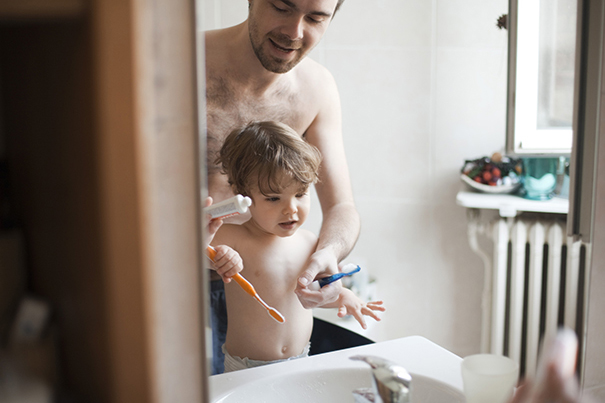
Children's Dentistry and Child Dental Hygiene
Dental health is vital for general health and appearance in childhood and all through life. Preventative dentistry is so good these days that our kids can look forward to keeping those pearly whites bright and shiny all their lives. We now know so much about keeping fear and pain out of dental care that children should really have no reason to worry at those twice-a-year visits to the dentist.
Here are a few things you can do to be sure that your child gets the right care and develops an attitude that will ensure that his smile stays bright for a lifetime.
Pick a Child-Friendly Dentist
There are paediatric dentists who have additional training and interest in kids’ dental issues. If you don’t have one in your community, look for a dentist whose waiting room, staff attitude and comfort with children tell you that this will be a good experience. Your healthcare provider will have suggestions.
Visit Ahead of Time
Bring your child in before the time of the appointment so he feels more comfortable with the place.
Examine Your Own Attitude About the Dentist
Many parents have some memories of bad dental experiences, and they can give unspoken negative messages about the dentist’s chair. The parent who can be the most positive about the visit should be the one to go with the child.
Respect Those Baby Teeth
Even though your child will lose his first teeth, proper care for them, including fillings, coatings, and the extraction of any teeth that have died, are all part of ensuring that the teeth underneath as well as the jaw grow well and stay healthy. Be ready for suggestions about care that weren’t options when you were a child. Ask about fluoride rinses.
Here are a few things you can do at home between visits to keep your little one’s teeth sparkly:
With good dental care at home and in the dental surgery – as well as the right amount of fluoride – your child should go through adulthood with a white, bright smile.
Establish Healthy Habits Early
It's not only good dental health habits that are important to instil in your child from a young age.
Encourage healthy eating habits such as not skipping breakfast, enjoying a wide variety of fruits and vegetables (in lots of bright colours), and picking healthy snacks over sugary treats.
Make it a routine to spend time outdoors every day with your little one to foster a love of physical exercise. Encourage him to be active from an early age. Once he starts crawling, try to make “pit stops” as seamless as possible: use nappy pants instead of nappies, as these can be changed quicker and he can be back to playing sooner.
Try to establish a regular bedtime routine by setting aside a little reading time each night before bed. You can read to him from as early as 6 months. When he is older, you can let him pick the book so that it's a treat he looks forward to before bed.

Read more about Baby
Join Pampers Club and get:




